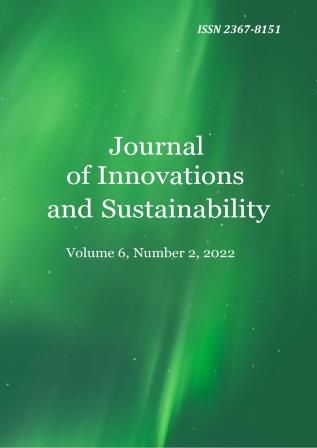Effect of federal government expenditure on economic growth in Nigeria
Effect of federal government expenditure on economic growth in Nigeria
Author(s): Anayo Emmanuel Nwankwo, Clement Ndukaife Ikechukwu Nwakoby, Felicia Akujinma Anyanwu, Amalachukwu Chijindu AnanwudeSubject(s): Economy, National Economy, Business Economy / Management
Published by: Сдружение „Академия за иновации и устойчивост“
Keywords: government expenditure; economic growth; Nigeria.
Summary/Abstract: Purpose. This study presents an evaluation of the effect of federal government expenditure on economic growth in Nigeria during the period 1986–2020. Economic growth in Nigeria over the years (precisely from 1986 when the Structural Adjustment Programme was introduced) is not in tandem with the magnificent rise in total government expenditure covering this period. The citizens have seen leadership in Nigeria as a failed litmus test, some have left the country to seek for “greener pastures” abroad. Specifically, this study examined the effect of recurrent and capital expenditure of the government on real gross domestic product, gross fixed capital formation, savings, and manufacturing capacity utilization.Results. The result of the analysis revealed that government recurrent expenditure has significant effect on real gross domestic product, gross fixed capital formation, and savings. Government recurrent expenditure is negatively related with real gross domestic product, gross fixed capital formation, savings, and manufacturing capacity utilization. Similarly, government capital has positive relationship with gross fixed capital formation and manufacturing capacity utilization, whereas it is negatively related with real gross domestic product and savings.Scientific novelty. The review of previous studies on economic growth is majorly measured using real gross domestic product. However, this study takes a new dimension by introducing three other variables: gross fixed capital formation, savings, and manufacturing capacity utilization which also reflect the level of growth in an economy. In addition, the application of the Auto-Regressive Distributive Lag (ARDL) model which takes into consideration of the different order of integration of time series data as against the Johansen co-integration that characterized previous studies in the Nigeria environment, will robustly help in determining the short run and long run effects of Federal Government expenditure on economic growth fundamentals in Nigeria.Practical value. This study therefore, is re-echoing the need for government to make capital expenditure her priority. By this, the government should allocate at least 50.0 % of her total expenditure on capital projects. The present-day practice of allocating only 16.6 % (based on year 2020 approved budget of the Federal Government) for capital expenditure will not to a great extent accelerate the pace of economic growth and development in Nigeria.
Journal: Journal of Innovations and Sustainability
- Issue Year: 6/2022
- Issue No: 2
- Page Range: 1-24
- Page Count: 24
- Language: English

